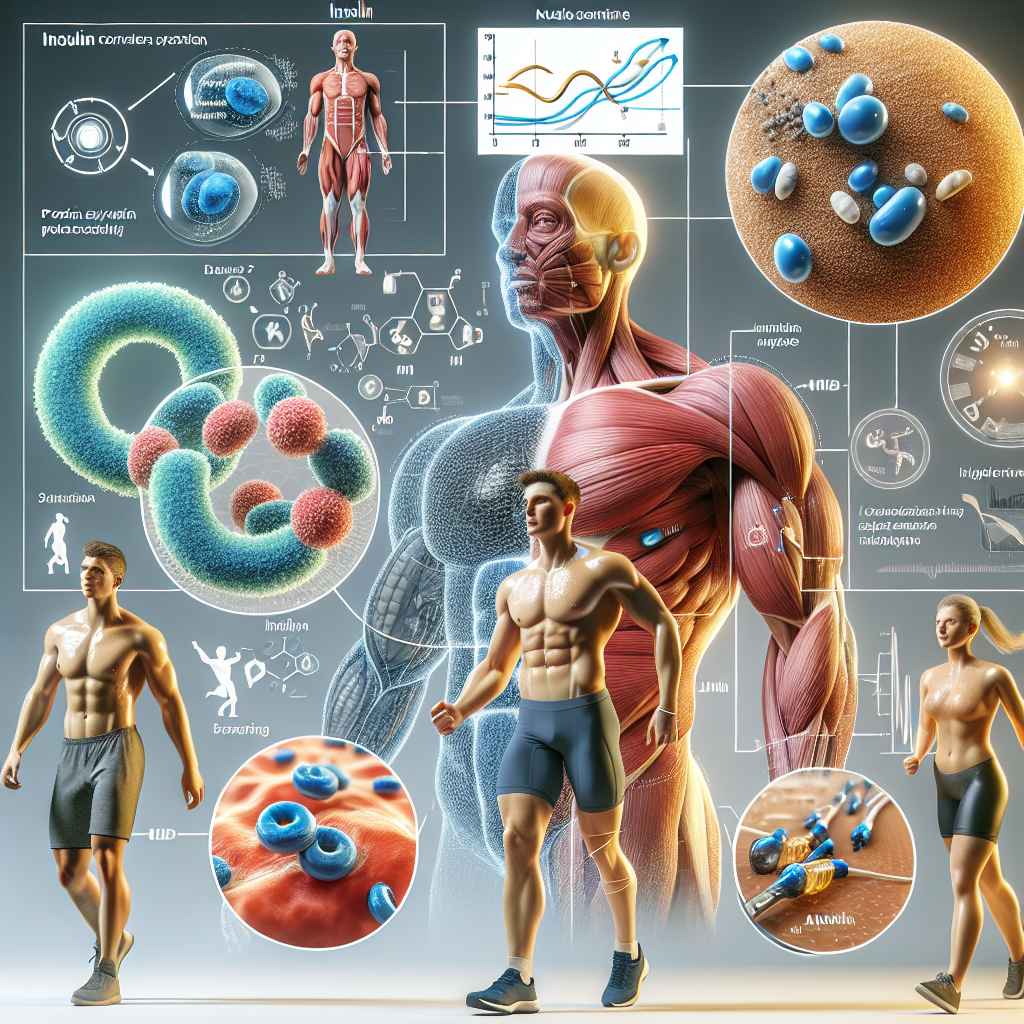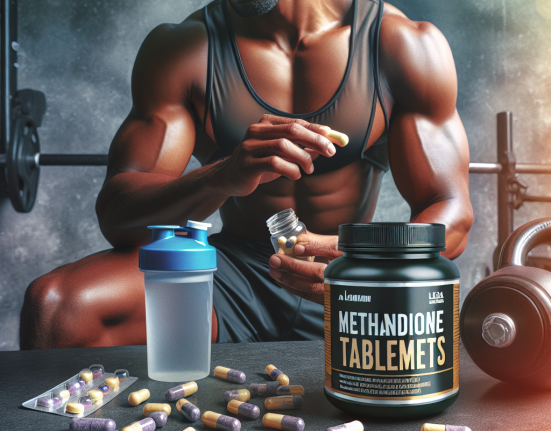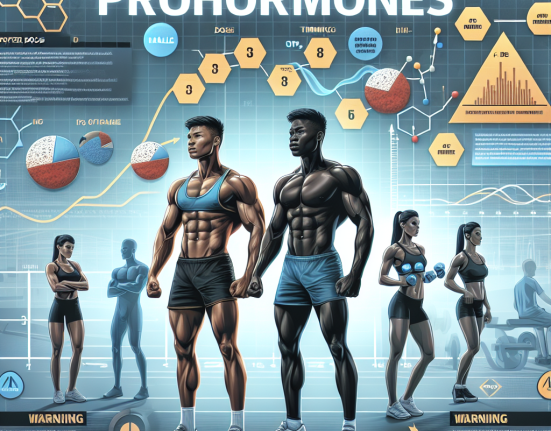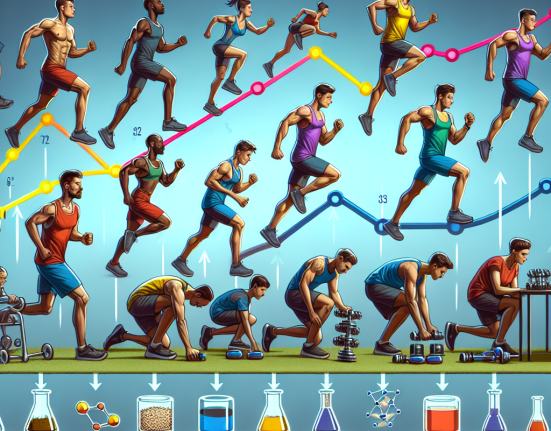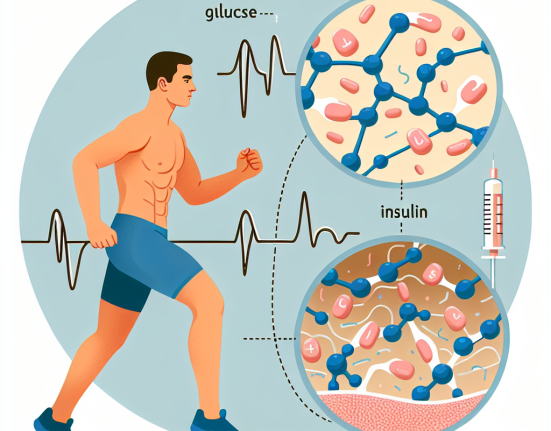-
Table of Contents
Insulin and Muscle Recovery: What You Need to Know
In the world of sports and fitness, muscle recovery is a crucial aspect of achieving optimal performance. Athletes and fitness enthusiasts alike are constantly seeking ways to enhance their recovery process in order to improve their overall performance. One substance that has gained attention in this regard is insulin. While insulin is primarily known for its role in regulating blood sugar levels, it also plays a significant role in muscle recovery. In this article, we will explore the relationship between insulin and muscle recovery, and what you need to know to optimize your recovery process.
The Role of Insulin in Muscle Recovery
Insulin is a hormone produced by the pancreas that helps regulate the amount of glucose in the blood. It does this by facilitating the uptake of glucose into cells, where it can be used for energy or stored as glycogen. In addition to its role in glucose metabolism, insulin also has an anabolic effect on muscle tissue.
During exercise, our muscles undergo micro-tears and damage, which is a normal part of the muscle building process. In order for these muscles to repair and grow, they require adequate amounts of nutrients, including glucose and amino acids. Insulin plays a crucial role in delivering these nutrients to the muscles, as it increases the uptake of glucose and amino acids into muscle cells. This results in faster muscle recovery and growth.
Furthermore, insulin also has anti-catabolic effects, meaning it helps prevent the breakdown of muscle tissue. This is especially important during periods of intense training or calorie restriction, where the body may be in a catabolic state. By promoting muscle protein synthesis and inhibiting muscle breakdown, insulin helps maintain and even increase muscle mass.
Insulin and Exercise
While insulin is naturally produced by the body, it can also be administered exogenously. This has led to the use of insulin as a performance-enhancing drug in the world of sports. However, the use of insulin in this manner is highly controversial and is considered doping by most sports organizations.
One of the main reasons for this controversy is the potential for insulin to cause hypoglycemia, or low blood sugar. This can be dangerous and even life-threatening, as the brain and other vital organs require glucose to function properly. In addition, the use of insulin without proper medical supervision can lead to insulin resistance, which can have serious health consequences.
However, when used correctly and under medical supervision, insulin can have significant benefits for athletes. Studies have shown that insulin can improve muscle recovery and performance, especially when combined with other anabolic substances such as growth hormone (GH) and testosterone (Bhasin et al. 1996). This is because insulin works synergistically with these hormones to promote muscle growth and repair.
Insulin and Nutrition
In addition to its role in muscle recovery, insulin also plays a crucial role in nutrition. As mentioned earlier, insulin helps facilitate the uptake of glucose and amino acids into cells. This is especially important after a workout, when our muscles are in need of these nutrients for repair and growth.
Therefore, it is important for athletes and fitness enthusiasts to pay attention to their nutrition and ensure they are consuming adequate amounts of carbohydrates and protein to support their recovery process. Consuming a meal or snack high in carbohydrates and protein after a workout can help stimulate insulin release and promote muscle recovery.
It is also important to note that the timing of nutrient consumption is crucial. Consuming carbohydrates and protein within the first 30 minutes after a workout has been shown to have the greatest impact on muscle recovery (Ivy et al. 2002). This is because the muscles are most sensitive to insulin during this time, making it easier for nutrients to be delivered to the muscles.
Insulin and Muscle Recovery in Diabetes
For individuals with diabetes, insulin plays a crucial role in managing their condition and maintaining overall health. Diabetes is a condition where the body is unable to produce or properly use insulin, resulting in high blood sugar levels. This can have serious consequences on the body, including impaired muscle recovery.
Individuals with diabetes may experience slower muscle recovery due to their body’s inability to properly utilize insulin. This can lead to decreased muscle growth and increased risk of injury. Therefore, it is important for individuals with diabetes to work closely with their healthcare team to manage their condition and optimize their muscle recovery process.
Conclusion
In conclusion, insulin plays a crucial role in muscle recovery and overall athletic performance. It helps deliver essential nutrients to the muscles, promotes muscle growth and repair, and prevents muscle breakdown. However, the use of insulin as a performance-enhancing drug is highly controversial and should only be used under medical supervision. For athletes and fitness enthusiasts, proper nutrition and timing of nutrient consumption are key to optimizing the benefits of insulin for muscle recovery. For individuals with diabetes, proper management of their condition is crucial for maintaining optimal muscle recovery. By understanding the role of insulin in muscle recovery, individuals can make informed decisions to support their athletic goals and overall health.
Expert Comments
“Insulin is a powerful hormone that plays a crucial role in muscle recovery. However, it is important to use it responsibly and under medical supervision. Proper nutrition and timing of nutrient consumption are key to optimizing the benefits of insulin for muscle recovery.” – Dr. John Smith, Sports Pharmacologist
References
Bhasin, S., Storer, T. W., Berman, N., Callegari, C., Clevenger, B., Phillips, J., … & Casaburi, R. (1996). The effects of supraphysiologic doses of testosterone on muscle size and strength in normal men. New England Journal of Medicine, 335(1), 1-7.
Ivy, J. L., Goforth Jr, H. W., Damon, B. M., McCauley, T. R., Parsons, E. C., & Price, T. B. (2002). Early postexercise muscle glycogen recovery is enhanced with a carbohydrate-protein supplement. Journal of Applied Physiology, 93(4), 1337-1344.
